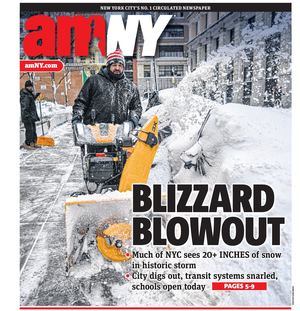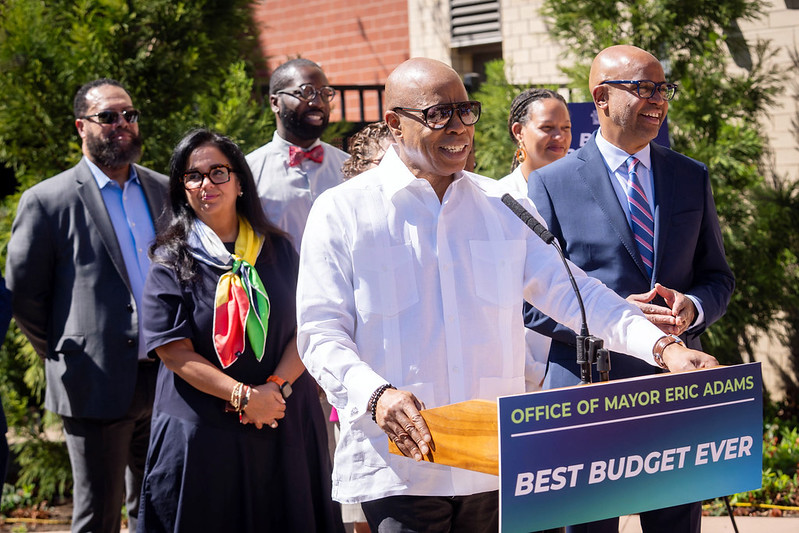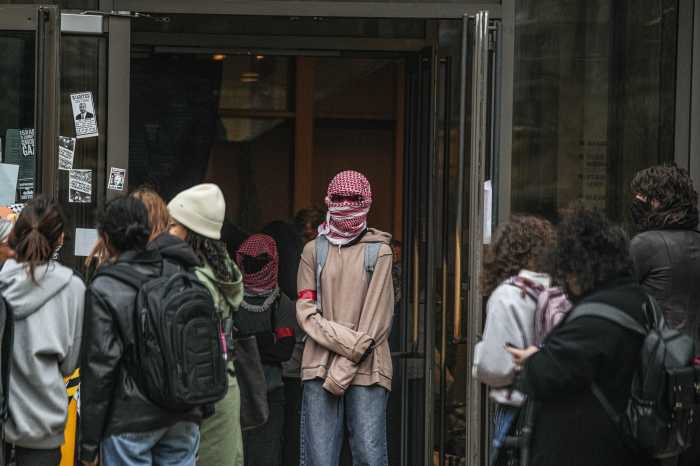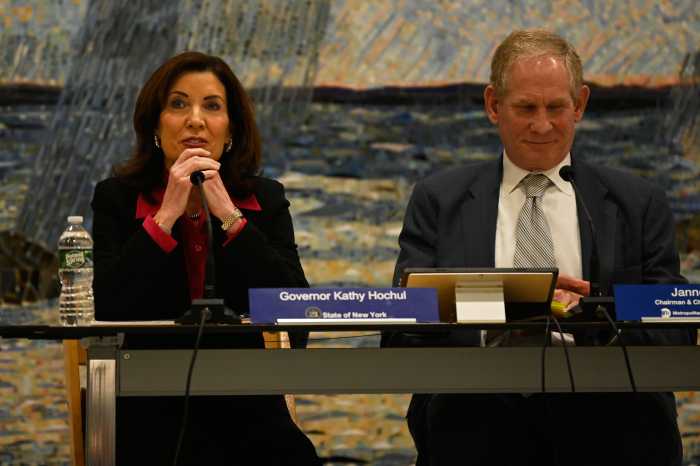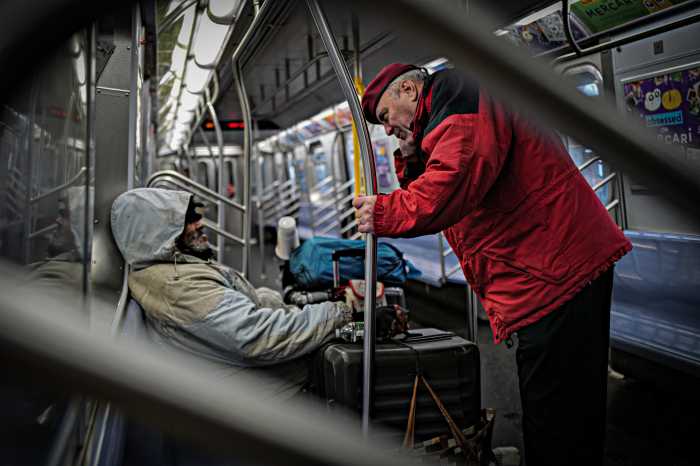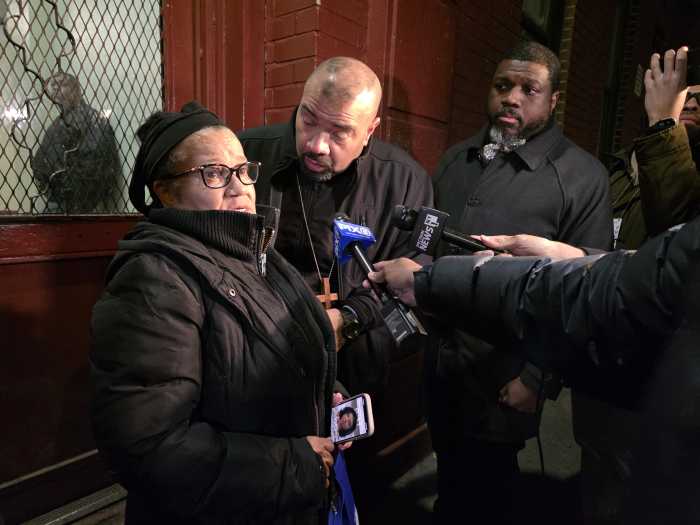Mayor Eric Adams doubled down on the importance of addressing help for mentally ill and homeless New Yorkers by supporting involuntary commitment laws during a Lower Manhattan press conference on Thursday.
Adams said that a crucial part of the NYS budget, which focuses on involuntary commitment of mentally ill individuals living on the streets and in subways, is something that his administration has been working on since 2022.
His announcement came nearly two weeks after Gov. Kathy Hochul and state lawmakers reached an agreement on the state FY2026 budget on April 28. The budget, being formally agreed upon today in an Albany vote, includes key changes in the treatment of individuals with severe mental illness and public safety, mostly based on expansions to Kendra’s Law.
“Three years later, I’m proud to announce that our advocacy has led to real progress, as Albany has finally taken action to make lasting change,” the mayor said. “And although it is rare, random attacks are still committed by people who desperately need help. We can not continue to ignore them, and we are not.”
Adams added that the budget includes other city requests to reform involuntary commitment, which is also known as involuntary hospitalization.
“Our clinicians have told us that the law previously was unclear on who they could transport to hospitals for evaluation and led to too many quick discharges of those transported,” he said. “Now, the state has heard our calls to clarify that inability to meet basic needs is a form of danger to self. This will allow so many others to get help and give clarity to those on the ground, making these life-saving decisions.”
Since the launch of his Subway Safety Plan in 2022, Adams said, nearly 8,500 New Yorkers received shelter and over 840 more went into permanent housing.
The administration also touted the SCOUT (Street Conditions Observation Unit) and PATH (Prevention Assistance and Temporary Housing) programs, which made “over 13,500 contacts with unhoused New Yorkers and provided services nearly 4,000 times,” the mayor said.
What does involuntary commitment mean?
City officials said legislative language will be updated to clearly define who qualifies for involuntary commitment. According to Brian Stettin, a senior advisor in the Adams administration, a person who is “not meeting their basic human needs of food, clothing, shelter and medical care” would qualify.
“The courts have given us case law that makes clear that when someone is in extreme self-neglect, they are a danger to themselves,” Stettin said.
Stettin helped draft legislation that became Kendra’s Law in 1999 after the death of Kendra Webdale, who was pushed in front of an oncoming N train in Manhattan by a man with schizophrenia.
Officials also said that since there is a shortage of psychiatrists in the city, more authority will be given to psychiatric nurse practitioners who have the skills and knowledge to diagnose mental illness and provide medication.
“We haven’t given them enough authority to actually decide that someone meets the criteria to come into the hospital. The law has only given that authority to physicians, leading to bottlenecks in our hospital,” Stettin explained. “We’ve taken an important step with this legislation to give more authority to psychiatric nurse practitioners to help make those decisions.”
City officials also support expanded assisted outpatient treatment (AOT) in the budget, a component of Kendra’s Law that mandates health services for those who can pose a danger to themselves or others. The state budget allocated $16.5 million for AOT and $2 million in NYS Office of Mental Health staffing to support people with severe mental illness.
